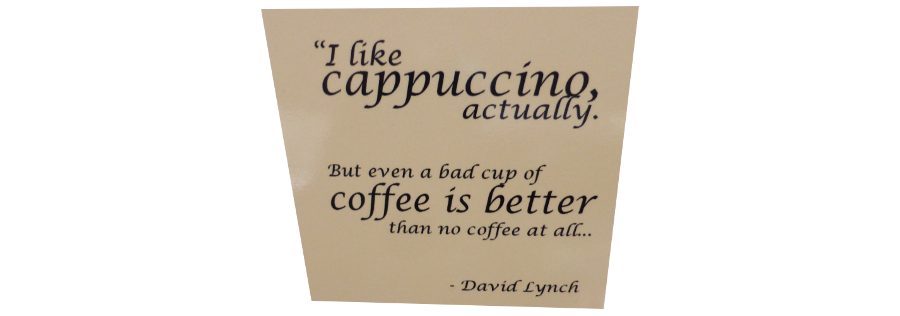The Roshi Makes Shitty Coffee
 Image by Duncan C. Creative Commons CC-By-NC 2.0
My friend, Bobby Byrd has this brief poem in his book Otherwise, My Life is Ordinary:
Image by Duncan C. Creative Commons CC-By-NC 2.0
My friend, Bobby Byrd has this brief poem in his book Otherwise, My Life is Ordinary:
Koan
The Roshi makes shitty coffee
The Roshi in this poem refers to Rev. Dr. Harvey Daiho Hilbert Roshi and indeed he makes shitty coffee. Bobby, I, and a host of others would be at some weekend meditation retreat lead by Daiho. It’s afternoon, we are dragging a bit and all we would have to drink would be some cheap coffee from a container opened months ago made in an old percolator that Daiho turned on at 5am that morning. Ocassionally Bobby or I would dash to Starbucks to bring coffee back for the people who wanted decent coffee. Of course a real coffee connoisseur wouldn’t dream of drinking Starbucks coffee. That’s not the only time I have had a desire for good coffee. Several times a year I drive 2,000 miles from Virginia to New Mexico and when I need a caffeine fix, I start looking for a Starbucks coffee shop. At home I grind whole beans in a burr grinder and brew the coffee in a hand drip ceramic coffee dripper.
In one of the first teachings of the Buddha he says that desire is the principal cause of dukkha or suffering. This is expressed beautifully in the poem I mentioned in the last post, Hsin Hsin Ming:
The Great Way is not difficult for those who have no preferences. … Make the smallest distinction, however, and heaven and earth are set infinitely apart
How do I reconcile coffee snobbery with this core buddhist belief? Or how do I reconcile any of my preferences–my preference for green enchiladas at Chopes in La Mesa, for Frozen Custard from Caliches in Las Cruces or Dairy Godmother in Alexandria over any other ice cream? As mentioned in the last post, it’s not the preference that will lead to suffering but the attachment to that preference. Say I need a coffee fix in West Texas and I drive for several hundred miles without encountering a Starbucks and now I feel life sucks, this trip is misery, on and on because of no Starbucks. This attachment to a preference is a big problem. On the other hand, if I need a coffee fix in West Texas, look for a Starbucks for a hundred miles and. not finding one, stop at a truck stop and enjoy their brew, my preference for Starbucks is no big deal.
One way of lessening this attachment to preferences is a self-denial practice proposed by the Stoic, Seneca. In this practice you live as if you do not have what you prefer. In the coffee case, the practice would be to drink shitty coffee. I tried this twice in the last year. Once I bought a 10.5 ounce jar of Nescafe Instant Coffee from Walmart, which made something like 150 cups of coffee. For months, that was the only coffee I drank at home. The next experiment was not as bad–again a Walmart trip, this time for a 30 ounce plastic tub of Folgers Ground Coffee. These experiments helped me view good coffee as a perk, as something that was special, and not a requirement for a good day. William Irvine, the author of the worthwhile book A Guide to the Good Life: The Ancient Art of Stoic Joy says that one benefit of this approach is that the person who does this grows confident that doing without Starbucks is no big deal. Doing without going to their favorite restaurant or being cold when outside is no big deal. We learn we can easily live without our preferences. This self-denial is very good practice.